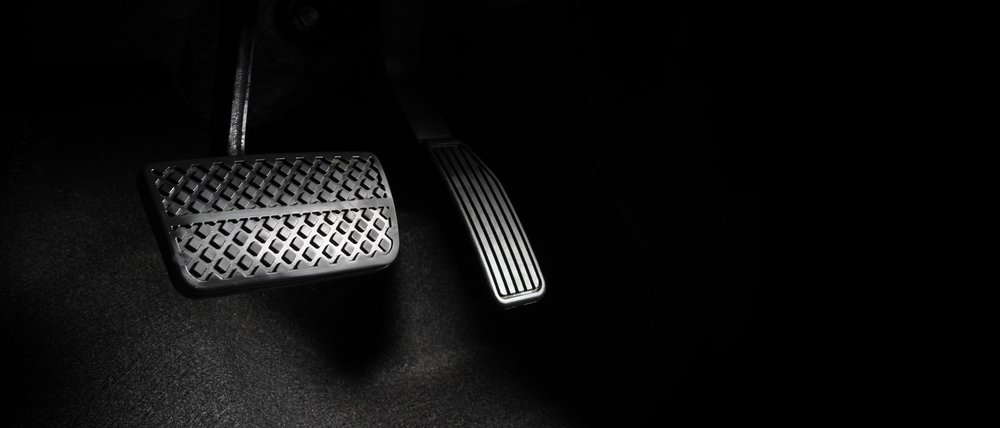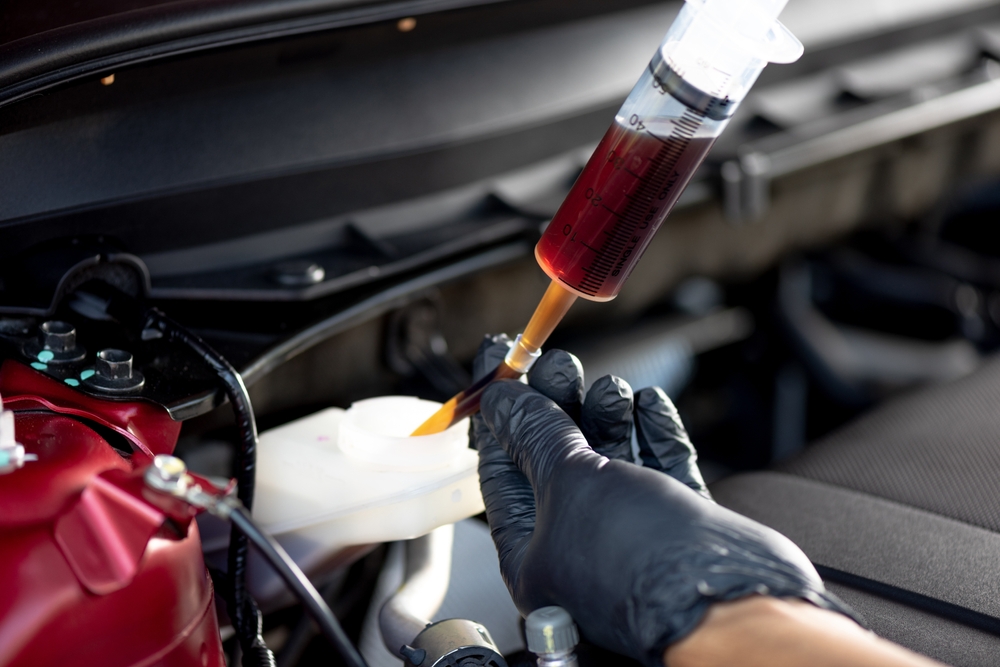
Top 5 Types Of Brake Noise: What Do They Mean?
Driving with a squealing sound coming from your brakes is more than an annoyance, it’s a huge safety concern. After all, your brake system is your safety system in case of any emergency, and if it isn’t functioning properly, then it’s time to have it checked up. But if you don’t know what type of brake noise your vehicle is making, then determining what’s wrong with your car and the best course of action is difficult and can be anxiety-inducing.
No need to worry though. Amarz Muffler & Auto Service has gathered our top experts in the matter, and we’ve compiled the 5 common brake noises you should look out for when driving, and what exactly each one of them entails for the condition of your vehicle.
Let’s begin.

Squeaky brakes
Squeaky brakes while driving are one of the most, if not the most, common car brake noises you can experience. While many people are used to the sound, and when it rains it isn’t particularly a cause of concern, it can be a symptom of the following:
- Worn brake pads: Brake pads are designed to cause this noise once they’re thinning, and that’s when you’ll know getting them replaced is required. If the noise persists, take them to a mechanic right away.
- Overnight moisture: When exposed to rain, snow, or moisture for a couple of hours, a thin layer of rust can build on the rotors. It can easily get fixed with a little driving, or parking your car indoors.
- Lack of lubrication on the drum brakes: A lack of lubrication between the drum brakes and the shoes causes the former to scratch against the backing plate. We recommend replacing the drum brakes.
- Debris accumulated between the brake rotor and pads: Brake dust, mud, and other debris can collect on the surface of your rotors or pads if your car has been sitting for a long time. Cleaning the area is the best solution to stop those dusty squealing sounds.

Squealing brakes
We know how bothersome brake squealing can be, especially because it’s a very common noise. The causes of this sound are similar to the last one, and while some of them do have an easy fix, others will require a bit more attention. Such as:
- Poorly fitting brake pedal: An unfitted brake pad can be the origin of your car’s noise problems, causing friction on the brake disc. Make sure they’re fitted properly to stop the sound.
- Glassy rotor or drum: Worn-down rotors or drums will have a glassy finish, creating that annoying squealing noise. Take them to a specialist to determine whether they need replacement or can be resurfaced.
- Lack of lubrication: Sticky movement on the caliper piston or a shortage of lubrication on other components (brake pads, backing plate, disc rotor) results in a squealing noise. Your mechanic can lubricate them to solve this issue.

Vibrating noise
Clattering sounds are the most concerning type of sound. If your vehicle has Anti-Lock Brake System and you’ve stepped on the brakes quickly, then this can be the cause. However, if that’s not the case, then there are other issues as to the origin, and for all of them we recommend taking the car to the mechanic as soon as possible:
- Warped rotor: A warped rotor creates uneven contact with the pads, which leads to a vibrating steering wheel, or an oscillating pressure on the pedal. The rotor or drum must be replaced.
- Missing hardware: Your brake system is composed of many elements, all of them essential for a proper operation. If one of them isn’t installed correctly, the system becomes loose.
- Soiled brake caliper slides: Soiled brake caliper slides are the reason for the calipers to stick, and will cause a clattering noise. A specialist cleaning the calipers will solve the problem once and for all.

Grinding noise
The worst part of a grinding sound is that you can feel it, too, and no one likes hearing and sensing metal dragging against metal. A car brake making noise is a sign that something needs fixing, and usually ends up in repairing a component or replacing it. Your brake grinding can be caused by:
- Extreme wear and tear of the pads: Worn-out brake pads can produce that terrible grinding or squealing sound. Take your vehicle to a technician to ensure your braking system functions safely.
- Stuck wheel cylinder or caliper: A sticky caliper can squeeze the pad against the rotor. Or, a wheel cylinder can press the brakes. The friction in both cases involves a grinding sound, and requires immediate inspection.

Clicking noise
Finally, a clicking or tapping noise when braking is often overlooked but just as important to notice, as it implies there’s a loose element in the system. It can also mean one of the components is damaged, like the pads or the caliper. To say goodbye to your brake noise problems, you’ll have to take your vehicle for inspection and, if needed, repair or replacement.
Is it safe to drive when my brakes are making noises?
It’s true that your car makes different kinds of sounds when running, but when it comes to your brake system, it’s essential to always pay attention and take it for a tune-up as soon as possible. Whether that is a squealing or squeaking noise, maintaining the integrity of the brakes ensures your life and the lives of other drivers are never in jeopardy.
Remember, most causes of brake noise mean an element that needs fixing. Not addressing the issues can lead to higher repair costs and, worse, brake failure on the road. So, no, it isn’t safe to drive when your brakes are making noise. It’s better to prioritize yourself and others, and take your vehicle for inspection.
Trust Amarz Muffler & Auto Service to solve your braking noises!
Don’t spend another second driving with that annoying squeaking or squealing sound. Make brake noise a memory of the past by scheduling an appointment with Amarz Muffler & Auto Service right now. We’ll diagnose the root of your brake system problem, and deliver efficient solutions at affordable pricing. Get in contact with a member of our crew now!
